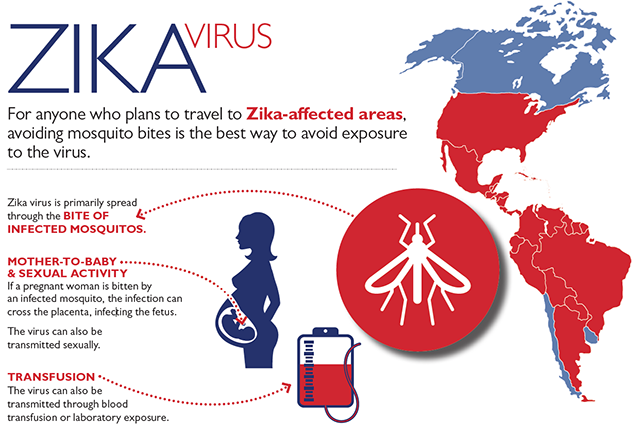The Zika virus is transmitted through the bite of the Aedes mosquito. It has become a pretty large public health concern in recent years, particularly due to the amount of harm it can cause to pregnant women and unborn babies. Because of this, the World Health Organization recommends that pregnant women avoid traveling to Zika affected countries. However, as the virus can also be contracted through sexual intercourse, further measures do need to be taken by anyone traveling to a Zika infected country.

If you are currently planning your next vacation or going backpacking around the world, consider the following points before picking a destination.
Zika Categories
As all students of the online MPH degree will know, the Zika virus has been categorized into four different categories. These are as follows:
- Category 1 – Areas that are most at risk of the virus. These have had reported Zika cases since 2015.
- Category 2 – Areas that have evidence of the Zika virus prior to 2015 that don’t fit into the Category 1 status.
- Category 3 – Areas that seem to have stopped the virus but where there is still the potential for transmission.
- Category 4 – Areas that do have Aedes mosquitoes but where there have not been any reported cases of the Zika virus.
You can view the current Zika virus classification tables and the countries that fall into each category on the World Health Organization’s website.
Advice for Traveling in Category 1 and 2 Countries
The World Health Organization and master of public health online graduates advise against all but essential travel to category 1 and 2 countries. If you have no choice but to travel in a Zika affected area, keep the following advice in mind:
- Wear long clothing that covers as much of your body as possible.
- Use mosquito repellent products that contain DEET. This should be applied liberally to all exposed areas of the skin in accordance with the manufacturer’s instructions.
- Ensure the room you are staying in has mosquito nets and mosquito barriers on the doors and windows.
- Sleep under a mosquito net – especially during daytime hours when the Aedes mosquitoes are most active.
- Practice safe sex using condoms.
Upon Returning Home
There are further things that you can do upon returning home from a Zika infected country. For starters, all travelers are advised to continue using mosquito repellant for a minimum of three weeks upon returning home. Condoms should be used during sexual intercourse to prevent spreading the infection for at least six months. Partners of pregnant women should refrain from sexual intercourse until after the baby is born.
84 countries are currently affected by the Zika virus, and although public health departments are doing as much as possible to reduce the number of cases and make people aware of the virus, there is still no vaccine. More than 40 possible vaccines are currently being trialed, so it is hoped that there may be a way to reduce the number of casualties in the near future.
